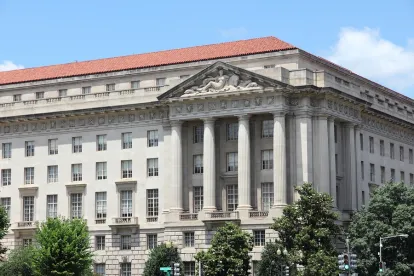The U.S. Environmental Protection Agency (EPA) is not immune from negligence claims that would “eviscerate” liability under the Federal Tort Claims Act (FTCA). So says United States District Judge Judith E. Levy in her decision for the Eastern District of Michigan, which rejected EPA’s immunity from suits by private citizens in environmental cases where the agency has oversight. See In re Flint Water Cases, 2020 WL 5077092, at *22 (E.D. Mich. Aug. 26, 2020).
In an unprecedented win for the private citizens suing state and federal entities over the water crisis in Flint, Michigan, Judge Levy dealt a crushing blow to the EPA’s attempt at avoiding the suit. In an 86-page order, Judge Levy denied the EPA’s motion to dismiss the private citizens’ complaint. Although the decision is almost sure to be appealed (as an interlocutory appeal to the Sixth Circuit), the decision signals potentially far-reaching implications with respect to EPA’s liability for its decision making. It also raises questions for regulated entities dealing directly with the agency or facing lawsuits directly related to their actions following EPA guidance or oversight.
EPA Fails to Establish Exception to Liability Under FTCA
Early in the litigation, the EPA argued that its oversight of the Flint water crisis was protected by sovereign immunity and therefore not subject to liability under the FTCA. The FTCA waives sovereign immunity for claims of personal injury or death caused by the federal government’s negligence “under circumstances where the United States, if a private person, would be liable to the claimant in accordance with the law of the place where the act or omission occurred.” 28 U.S.C. § 1346(b)(1). In its motion to dismiss, EPA argued that it was covered by the FTCA’s “discretionary function” and “misrepresentation” exceptions. However, the court concluded that the EPA would be potentially liable if it were a private citizen under the Good Samaritan doctrine and therefore rejected the EPA’s reliance on the “misrepresentation exception.” In finding that the EPA’s actions in Flint were “discretionary,” the court devoted almost 40 pages of analysis to supporting why the EPA’s actions and inactions were neither discretionary nor were they judgments based on considerations of public policy.
Potential Implications of Expanded EPA Liability
The EPA will almost certainly appeal the finding of liability, so the full consequences of the court’s decision are uncertain. If EPA does not appeal or loses its appeal, there may be further discovery into the agency decision-making process, including depositions of key government witnesses. Regardless, this decision raises a host of issues with respect to the potential impact of claims alleging EPA negligence. Indeed, the EPA’s immunity ― which is commonly considered to be largely airtight ― should be examined by regulated entities with a careful eye towards legal implications and strategies. If EPA has failed to follow Congress-mandated directives, as was alleged by the plaintiffs in the Flint water cases, or when an entity is sued after following the EPA’s own guidance, regulated entities should consider whether EPA shares some of the fault.
For example, businesses that work closely with EPA for oversight should be mindful of the agency’s potential responsibility due to its mismanagement, errors, omissions or other lapses of its obligations. However, FTCA liability is fact-intensive and depends, in large part, on the allegations at play and the grounds upon which the plaintiffs stake their claims and therefore may only be available in only the most egregious of circumstances, such as in Flint. But, regulated entities should consider whether 1) the initial statutory hurdle of showing that a private citizen might have been subjected to liability under similar circumstances has been met, and 2) the EPA’s actions/inactions are discretionary in nature, based on the particular statutory regime and regulations at play. Using this framework, defendants facing litigation might develop a strategic alternative whereby contribution against the EPA is sought if the agency’s oversight is partially to blame. This could also shape negotiations between a regulated entity and the EPA if the regulated entity can demonstrate EPA made similar lapses.
Similar ‘Agency Accountability’ Trends Developing in State Courts
Courts will no doubt continue to afford great latitude to EPA in its regulatory and management decisions, and the Eastern District of Michigan’s ruling may very well be reversed. But the ruling nonetheless sends a clear message: governments may not be entirely immune from their decisions when it comes to environmental regulation and oversight. There may also be a similar trend among state courts in other high-profile environmental cases, particularly where Environmental Justice concerns may be implicated. In June, the Indiana Court of Appeals in State v. Alvarez, 2020 WL 3068449, at *4 (Ind. Ct. App. June 10, 2020), held that various Indiana state agencies, including the Indiana Department of Environmental Management, were not immune from suit under the Indiana Tort Claims Act for their role in the East Chicago Lead Contamination Superfund Site. Applying a similar analysis to that of the Flint Water Cases, the Indiana Court of Appeals concluded the state agencies’ alleged inaction to protect low-income residents that lived in the Superfund Site was not based on a discretionary function and were therefore not immune from plaintiffs’ claims that the agencies’ misconduct went beyond the pale.
These decisions, though recent and small in number, show a potential trend in further scrutiny of agency decision making that could extend into the realm of common law torts. It could also be a note of caution to the regulated community that relying entirely on regulatory compliance and agency guidance may not shield against liability. Furthermore, these decisions could increase risk to state and local governments involved in environmental-related activities, such as brownfield redevelopments, that they may not be immune to tort claims.






 />i
/>i
